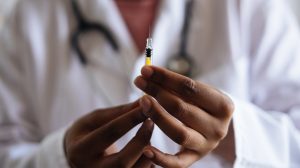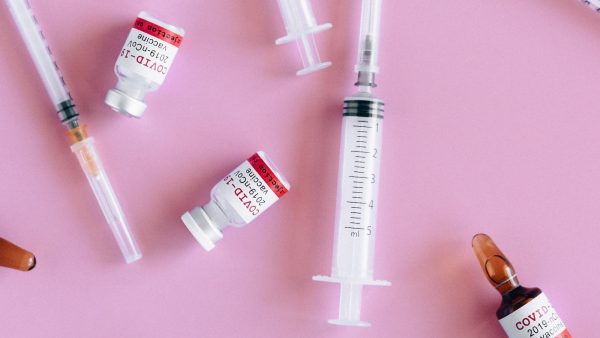Nobody really likes needles, but there was a time when I was pricked without a murmur. Until ten years ago I had to have a blood test for the first time. The idea that a needle would go into my vein was so terrible that I completely panicked on it supreme moment. I drove myself crazy and I’ve been stuck with baked pears ever since.
“You were dreading it, it was confirmed that it was annoying and now you associate pricking with something unpleasant,” concludes Schenk. He doesn’t think it’s very strange that I now think everything about needles is terrible: “Your fear is only getting bigger. There is often no time to poke someone quietly, it all has to be done quickly, quickly, and of course that doesn’t help either.”
Read also
What you say to your child in the first minute after vaccination is important
Symptoms
Schenk has been guiding people who have this fear for twenty years and even has his own injection anxiety consultation in the Meander Medical Center in Amersfoort. “The fact that people have a needle phobia is often caused by trauma. But there are also people who have had it since birth and who panicked when they got their vaccinations as babies. Finally, there is a group that only find a certain place annoying, for example in the upper arm. For example, blood tests are fine for them.”
Fear also manifests itself differently in everyone. I tremble, usually cry when I feel the needle in my arm – not from the pain but from the fear – and a fog rises in my head. It makes sure that I don’t perceive much anymore and probably won’t react when you talk to me. Recently someone also held my hand during the blood test, but I have no memory of that. I only heard that afterwards. Equal to work or driving after the injection is not so wise, because that fog often lingers in my head for a while. And then I haven’t even mentioned all those horrible needle photos over news stories in this day and age. I’m not good at that.
Schenk also sees many other symptoms in his practice, such as hyperventilation, panic attacks, fainting or vomiting. Some people even block so much that they really have to be pushed into the injection room. “Now that the vaccinations are coming up, I am twice as busy at the outpatient department,” he says. “People are really worried. I am going to try whether I can also vaccinate, I have done that for years as a GGD doctor. Then very anxious people can come to me. I’ve already had calls from former patients asking if I could vaccinate them.”
Treatments
If you prefer to work on your deep fear now, Schenk says there are various options. “You can follow cognitive behavioral therapy and EMDR therapy (a kind of trauma and loss therapy, ed.), but I like to work with laughing gas myself. First I do an intake and I try to find out where the fear comes from. Then we really do the injection, while the patient wears a laughing gas mask. This is an approved drug, by the way. It ensures that patients are more relaxed and lose the sharp edges of their fear.”
“It is important in any case that you admit that you have a fear of needles”, says Schenk. “Tell that to the person who is going to inject you, so that they can help you. If it doesn’t, ask if you can be poked at a different, quieter time or if it can be done by someone else. You can also call the hospital in advance and ask if they will make more time for you.”
Tips
And, easier said than done: try to relax. “Don’t look at the needle and listen to music or watch a movie on your tablet. Or talk to the person who pokes you. Taking a trusted person often also helps.” According to Schenk, you can really get rid of your fear. “A few times a year I see women who don’t dare to get pregnant because of the blood tests. So not because of the birth. I think it’s nice to see that after a long time I suddenly receive a birth announcement: it worked.”

Read also
GGDs are very concerned about young people who refuse vaccination due to a fear of needles
–


